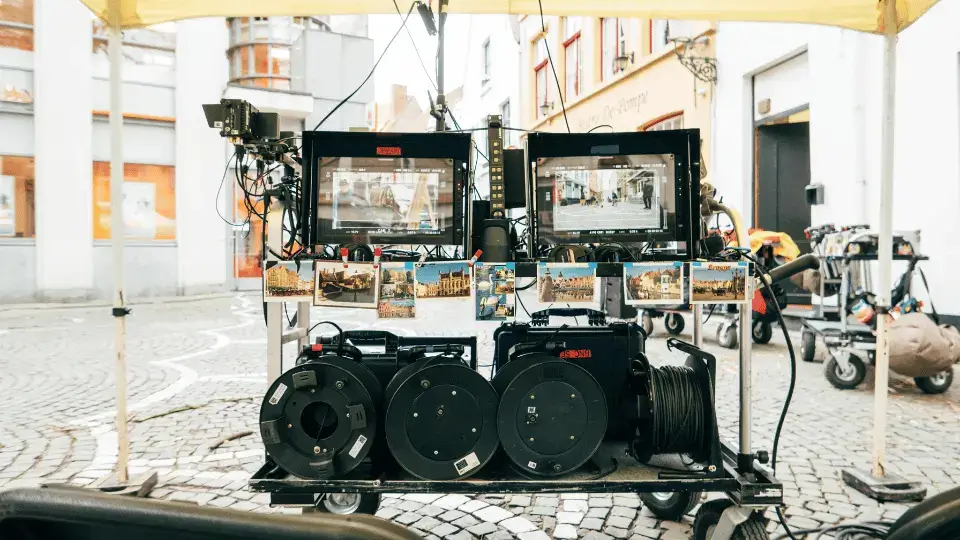Becoming a Successful Camera Operator: Essential Tips for Career Growth
If you’re passionate about filmmaking and love the technical aspects of cinematography, then becoming a camera operator may be the perfect career for you. Camera operators are responsible for capturing the visual elements of a film or TV show, working closely with the director of photography and other members of the camera team to create stunning shots and scenes.
But how do you become a successful camera operator? What skills and qualities do you need to excel in this role, and what steps can you take to advance your career? In this article, we’ll explore the world of camera operation and share some essential tips for career growth.
What Does a Camera Operator Do?
Camera operators are responsible for operating the camera during filming, capturing the shots that will later be edited together to create a finished product. They work closely with the director of photography and other members of the camera team to ensure that the shots are framed correctly, in focus, and well-lit.
In addition to operating the camera, camera operators may also be responsible for setting up and adjusting equipment, such as tripods, dollies, and cranes, to achieve the desired shot. They may also work with the director and other members of the creative team to plan and storyboard shots before filming begins.
What Skills and Qualities Do You Need to Excel as a Camera Operator?
To excel as a camera operator, you’ll need a combination of technical skills, creative vision, and personal qualities that will help you work effectively as part of a team. Some of the most important skills and qualities for camera operators include:
- Technical proficiency: As a camera operator, you’ll need to be proficient in using a variety of camera equipment, including different types of cameras, lenses, and accessories. You should be comfortable with the technical aspects of cinematography, including exposure, focus, and lighting.
- Creative vision: Great camera operators have a strong creative vision and are able to work closely with the director of photography and other members of the creative team to achieve the desired look and feel for a film or TV show.
- Attention to detail: Camera operators need to be detail-oriented and able to spot potential issues with shots, such as camera shake or poor lighting, before they become a problem.
- Communication skills: Camera operators need to be able to communicate effectively with other members of the camera team, as well as the director and other members of the creative team. They should be able to take direction and provide feedback in a clear and concise manner.
- Physical stamina: Filming can be a physically demanding job, requiring long hours on set and the ability to carry and set up heavy equipment. Camera operators should be in good physical shape and able to handle the demands of the job.
How Do You Become a Camera Operator?
Becoming a camera operator typically requires a combination of education, training, and hands-on experience. Here are some steps you can take to become a camera operator:
- Get educated: While a formal education isn’t strictly necessary to become a camera operator, it can be helpful in developing the technical and creative skills you’ll need for the job. Consider enrolling in a film or media program at a college or university, such as New York University’s Tisch School of the Arts.
- Gain experience: Hands-on experience is essential for aspiring camera operators. Look for opportunities to work on student films, independent projects, or other low-budget productions to gain experience with camera equipment and techniques.
- Network with other professionals: Networking is key in the film industry. Attend film festivals, industry events, and other networking opportunities to meet other professionals in the field and build relationships that could lead to job opportunities.
- Build a reel: As you gain experience, start building a reel of your best work to showcase your skills and abilities to potential employers.
- Look for job opportunities: Once you have the education and experience you need, start looking for job opportunities as a camera operator. Check job boards, production company websites, and other industry resources for job openings.
Key Takeaways
Becoming a successful camera operator requires a combination of technical proficiency, creative vision, attention to detail, communication skills, and physical stamina. To achieve success in this field, you’ll need to gain education and hands-on experience, network with other professionals, and build a reel of your best work.
If you’re interested in pursuing a career as a camera operator, consider taking the NYU Film and TV Industry Essentials online course and certificate program. This program provides a comprehensive overview of the film and TV industry, including the roles and responsibilities of camera operators, and can help you gain the skills and knowledge you need to succeed in this exciting field.




